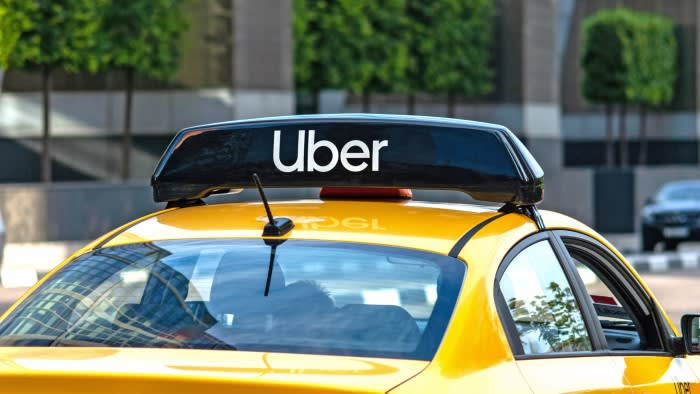Unlock the Editor’s Digest for free
Roula Khalaf, Editor of the FT, selects her favourite stories in this weekly newsletter.
Uber’s revenue rose 20 per cent in the third quarter as ride bookings and food deliveries on the app continued to grow amid robust consumer spending in the Americas and northern Europe.
Revenue of $11.2bn was slightly ahead of analysts’ expectations and up from $9.3bn in the same three-month period a year earlier, the San Francisco-based company said on Thursday.
Operating income jumped to $1.1bn from $394mn, far ahead of the average estimate, as bookings increased 16 per cent and its monthly users reached 161mn, up from 142mn last year.
Chief executive Dara Khosrowshahi pointed to “solid results in our core business alongside substantial progress in our new product portfolio and our autonomous strategy”.
He was referring to recent partnerships with Google’s Waymo self-driving taxi service and General Motors’ Cruise, and new ventures such as teen accounts, hiring motorbikes and the ability to reserve cars in advance.
In recent years, Uber has expanded from its ride-hailing roots into train and flight bookings, food delivery, corporate logistics and advertising as it seeks to transform itself into a consumer “super app” that takes an ever-larger share of consumer spending and the resultant commissions.
Boosted by an 86 per cent rise in its stock this year and more than $9bn of cash, Uber recently explored a bid for $20bn US travel booking website Expedia, the Financial Times reported this month. Khosrowshahi ran Expedia for 12 years before Uber and current executive chair Barry Diller is his mentor.
Chief financial officer Prashanth Mahendra-Rajah said the company continued to “selectively evaluate acquisition opportunities”, but had “a high bar for any M&A”.
Uber’s financial performance is the latest indication of robust US consumer spending, despite inflationary pressures and the potential turmoil of a knife-edge presidential election. The US economy grew 2.8 per cent in the third quarter, continuing a streak, and it added more jobs than expected in September.
Bookings at Uber’s core ride-hailing service grew 24 per cent — in particular in the UK, Argentina and Germany — while food and grocery deliveries rose 17 per cent, driven by its main markets in the US, Canada and Mexico. Freight bookings grew much slower, at 2 per cent.
However, Khosrowshahi added that there was room for growth. “It’s a common misconception that almost everyone already uses Uber,” he said. “We are taking a more active approach to unlocking less dense suburban and secondary markets, in both the US and abroad.”
The company disclosed it had generated $6bn of free cash flow in the past 12 months and had cash and short-term investments of $9.1bn at the end of the quarter.
Uber also reported $1.7bn in unrealised gains on the carrying value of its $7.9bn portfolio of equity investments, which include self-driving car company Aurora, Chinese ride-hailing group DiDi and food delivery services Grab and Delivery Hero. This caused its net income to increase almost 12-fold to $2.6bn from $219mn.
Looking ahead, Uber said it expected its adjusted earnings before interest, tax, depreciation and amortisation — its preferred profit measure — to be between $1.78bn and $1.88bn in the current quarter to the end of December. Analysts were expecting $1.84bn, according to estimates collected by Visible Alpha.


